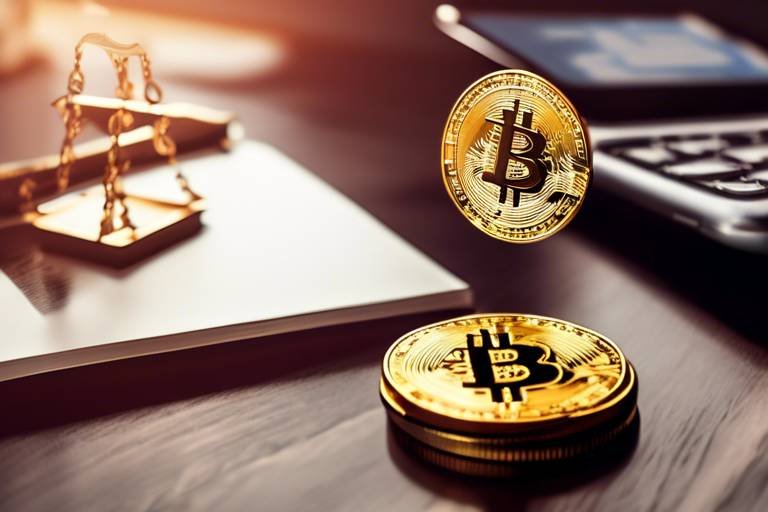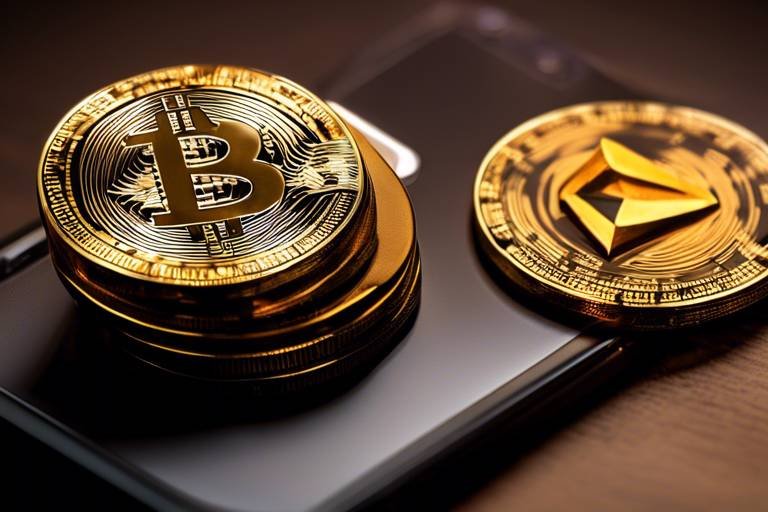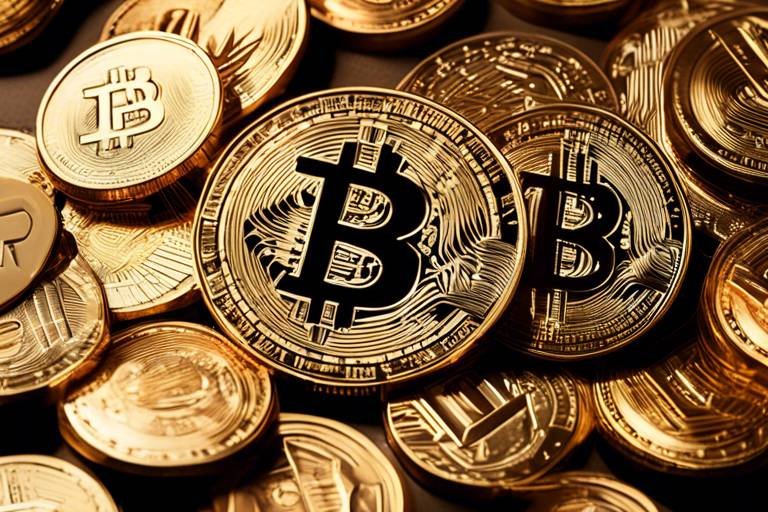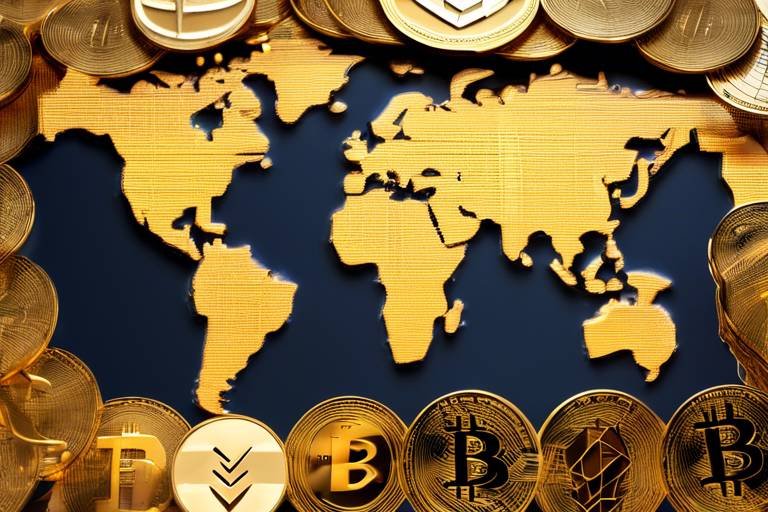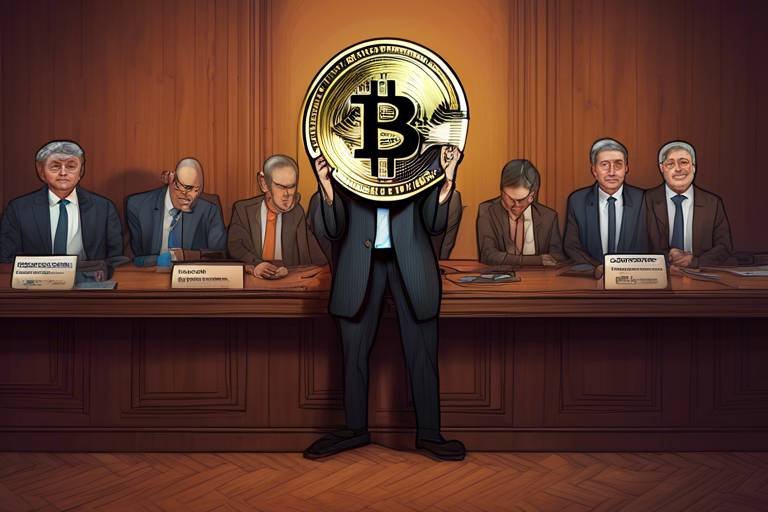The Legal Status of Non-Fungible Tokens (NFTs)
In recent years, non-fungible tokens (NFTs) have exploded onto the digital landscape, captivating not just tech enthusiasts but also artists, collectors, and investors alike. But what exactly does this mean for the legal world? As NFT technology evolves, so do the legal frameworks surrounding it. This article aims to navigate the complex terrain of NFTs, shedding light on the implications for copyright, ownership, taxation, and regulation. Understanding the legal status of NFTs is crucial for anyone involved in this burgeoning market, whether you're a creator looking to sell your art or a collector wanting to make informed purchases.
At their core, NFTs are unique digital assets verified using blockchain technology. Unlike cryptocurrencies such as Bitcoin or Ethereum, which are fungible and can be exchanged one-for-one, NFTs represent distinct items that cannot be replaced with something else. This uniqueness is what gives NFTs their value, and it’s also what makes them a fascinating subject for legal examination. Essentially, NFTs can be anything from digital art and music to virtual real estate and collectibles. The underlying technology ensures that each token is one-of-a-kind, creating a new paradigm for ownership in the digital realm.
The intersection of NFTs and copyright law is a hotbed of legal questions. When you purchase an NFT, do you also acquire the copyright to the underlying digital asset? The answer isn’t as straightforward as you might think. Copyright law traditionally protects the rights of creators, granting them control over how their work is used and distributed. However, the rise of NFTs complicates this landscape. Many creators sell NFTs without transferring copyright, meaning buyers may own the NFT but lack the rights to reproduce or distribute the work. This distinction is crucial, and understanding it can save both artists and collectors from potential legal headaches down the line.
When you buy an NFT, what exactly are you getting? While you may own a unique digital token, ownership does not inherently confer copyright. This means that the rights transferred with an NFT purchase can vary significantly. Typically, the transfer of rights is dictated by the terms set by the creator. For instance, some artists may grant buyers limited rights to display their work, while others may retain all rights. This ambiguity can lead to confusion and disputes, particularly when it comes to resale or reproduction of the digital asset. As the NFT market matures, clearer standards and practices will likely emerge, but for now, it’s essential for both buyers and sellers to understand the nuances of ownership rights.
The transferability of rights in NFT transactions is another complex issue. When an NFT is sold, rights can be retained or transferred based on the agreement between the buyer and seller. For example, a creator may choose to retain the copyright while allowing the buyer to display the artwork online. Alternatively, some contracts may explicitly transfer certain rights, such as the ability to create derivative works. It’s essential for participants in the NFT market to engage in clear, written agreements that outline the specific rights being transferred to avoid future disputes. The legal landscape is still catching up with the rapid pace of NFT innovation, making it crucial for all parties involved to be proactive in understanding and negotiating these rights.
Real-world examples can help illustrate the complexities of ownership rights in NFT transactions. One notable case involved a digital artist who sold an NFT of their work, only to later discover that the buyer was reselling the NFT without permission. This led to a legal battle over copyright and the rights associated with the NFT. Such cases highlight the need for clearer legal frameworks and the importance of understanding the rights that come with digital assets. As more creators and collectors enter the NFT space, these case studies serve as important lessons for navigating the intricate web of ownership and copyright.
As with any financial transaction, NFTs come with tax implications that vary by jurisdiction. Creators and buyers alike should be aware of how different countries approach taxation on NFT transactions. In some regions, NFTs may be treated as capital assets, subjecting them to capital gains tax upon sale. In others, they might be considered collectibles, which could come with different tax rates. Understanding these tax obligations is essential for individuals and businesses involved in the NFT market. Failure to comply with local tax laws can result in significant penalties, making it imperative to seek professional advice when navigating this new territory.
As NFTs gain traction, regulatory bodies are beginning to pay closer attention. Current regulations vary widely, with some countries embracing NFTs and others imposing strict restrictions. This evolving regulatory landscape can create uncertainty for participants in the NFT market. It's crucial for buyers and sellers to stay informed about regulations that may affect their transactions. Potential future legislation could further shape the NFT ecosystem, impacting everything from consumer protection to intellectual property rights.
Consumer protection laws are vital in the NFT space, ensuring that buyers are treated fairly and that their rights are upheld. As the market grows, these laws will likely adapt to address the unique challenges posed by digital assets. For instance, buyers should be aware of their rights regarding refunds, misrepresentation, and fraud. Understanding these protections can empower consumers to make informed decisions and help foster a more trustworthy NFT marketplace.
The regulatory approach to NFTs varies significantly across countries, influencing global markets and legal considerations. Some nations have embraced NFTs, creating favorable environments for innovation and investment. Others have imposed strict regulations or outright bans, citing concerns over fraud and money laundering. These differing perspectives can create challenges for international transactions, making it essential for participants to understand the legal landscape in their respective jurisdictions. As the NFT market continues to grow, harmonizing regulations could become a critical issue for global stakeholders.
- What is an NFT? An NFT is a unique digital asset verified on a blockchain, representing ownership of a specific item or piece of content.
- Do I own the copyright if I buy an NFT? Not necessarily; ownership of an NFT does not automatically grant copyright to the underlying work.
- Are NFTs taxable? Yes, NFTs can have tax implications, varying by jurisdiction, and may be subject to capital gains tax or other taxes.
- How are NFTs regulated? Regulations regarding NFTs differ by country and are still evolving, with some nations embracing them and others imposing restrictions.

[Understanding NFTs]
Non-fungible tokens, or NFTs, are revolutionary digital assets that have taken the world by storm, representing ownership of unique items or content on the blockchain. Unlike cryptocurrencies such as Bitcoin or Ethereum, which are fungible and can be exchanged for one another, NFTs are one-of-a-kind. Think of them as digital collectibles—each NFT is distinct and cannot be replaced with something else. This uniqueness is what makes NFTs so appealing to artists, gamers, and collectors alike.
At their core, NFTs leverage blockchain technology, a decentralized ledger that records transactions across many computers. This ensures that the ownership and provenance of each NFT are transparent and secure. Imagine a digital painting that you love; when it is minted as an NFT, it gains a certificate of authenticity that verifies its originality and ownership history. This is a game-changer for artists who have long struggled with copyright infringement and unauthorized reproductions of their work.
The creation and trading of NFTs are facilitated through smart contracts—self-executing contracts with the terms directly written into code. These smart contracts not only automate the buying and selling process but also enable artists to earn royalties on future sales of their work. For instance, if an artist sells an NFT for $1,000 and it later sells for $10,000, they can program the smart contract to receive a percentage of that sale. This feature is akin to getting a commission every time your artwork is resold, providing a continuous revenue stream.
NFTs have found applications across various industries, including art, music, gaming, and even real estate. In the art world, they empower artists to reach global audiences without intermediaries, while collectors enjoy the thrill of owning exclusive digital pieces. In gaming, NFTs can represent in-game assets, allowing players to truly own their items and trade them outside the game environment. The possibilities are endless, and as technology evolves, so too will the ways we interact with NFTs.
However, the rise of NFTs is not without its challenges. Issues such as environmental concerns related to energy consumption in blockchain networks, as well as legal ambiguities surrounding copyright and ownership, are hot topics of discussion. As we delve deeper into the legal landscape of NFTs in the following sections, it’s crucial to understand the implications of these digital assets and how they fit into our increasingly digital world.

[Copyright Issues]
The intersection of non-fungible tokens (NFTs) and copyright law raises a multitude of significant questions that are as complex as they are intriguing. As NFTs continue to revolutionize the way we think about digital ownership, understanding how copyright applies to these unique digital assets is crucial. When an artist creates a piece of digital art and mints it as an NFT, they are essentially embedding their work with a digital certificate of authenticity. However, what does that mean for the rights of the creator versus the rights of the buyer? This is where the waters start to get murky.
Copyright law traditionally protects the expression of ideas, but not the ideas themselves. This means that while the creator of a digital artwork maintains copyright over their creation, the purchase of an NFT does not automatically transfer those rights to the buyer. In other words, owning an NFT is akin to owning a limited edition print of a famous painting; you have the physical item, but the artist retains the copyright to the image itself. This distinction is vital for both artists and collectors to understand, as it impacts how they can use, sell, or display the work.
When a buyer acquires an NFT, they often assume that they are gaining full ownership of the underlying digital asset. However, this is not always the case. The rights transferred with the purchase of an NFT can vary significantly based on the terms set by the creator. For instance, some creators may choose to include a license that allows the buyer to use the artwork for personal purposes, while others may restrict usage entirely. This lack of standardization can lead to confusion and potential legal disputes down the line.
To clarify this point, let's consider a few potential scenarios:
- Scenario 1: A buyer purchases an NFT of a digital artwork that includes a license for personal display but prohibits any commercial use. In this case, the buyer can hang the artwork on their wall but cannot sell merchandise featuring it.
- Scenario 2: Another buyer acquires an NFT that comes with full commercial rights, allowing them to use the artwork in advertising or merchandise. Here, the buyer has more freedom, but they must ensure they understand the terms of the agreement.
- Scenario 3: A buyer mistakenly believes they own the copyright simply because they own the NFT. This misunderstanding could lead to legal issues if they attempt to use the artwork without permission.
The transferability of rights in NFT transactions introduces additional layers of complexity. When an NFT is sold, the rights associated with that NFT can either be transferred or retained based on the creator's stipulations. This is where licensing agreements come into play. Artists can specify what rights are included in the sale, and buyers must carefully review these terms before completing a purchase. It's essential to understand that the mere act of buying an NFT does not equate to acquiring copyright. Instead, it is a negotiation of rights that can vary widely from one transaction to another.
Real-world examples illustrate the complexities of ownership rights in NFT transactions. One notable case involved a digital artist who sold an NFT of their work, believing they had transferred copyright to the buyer. However, the buyer later attempted to create merchandise based on the artwork, leading to a legal dispute. The outcome highlighted the importance of clear communication regarding rights and licenses in NFT transactions. Another case involved a musician who sold NFTs of their songs, retaining copyright while granting buyers specific rights for personal use. This approach allowed the artist to maintain control over their work while still engaging with fans in a new and exciting way.
As the NFT market continues to grow, the legal landscape surrounding copyright issues will undoubtedly evolve. Artists, collectors, and buyers must stay informed about their rights and responsibilities to navigate this exciting but complex digital frontier.
- What rights do I get when I buy an NFT? Typically, you receive the ownership of the NFT itself, but not necessarily the copyright. Always check the licensing terms.
- Can I use the artwork from an NFT for commercial purposes? It depends on the rights granted by the creator. Review the terms associated with the NFT before using it commercially.
- What happens if I sell an NFT? The rights associated with the NFT may be transferred to the new owner, depending on the terms set by the original creator.
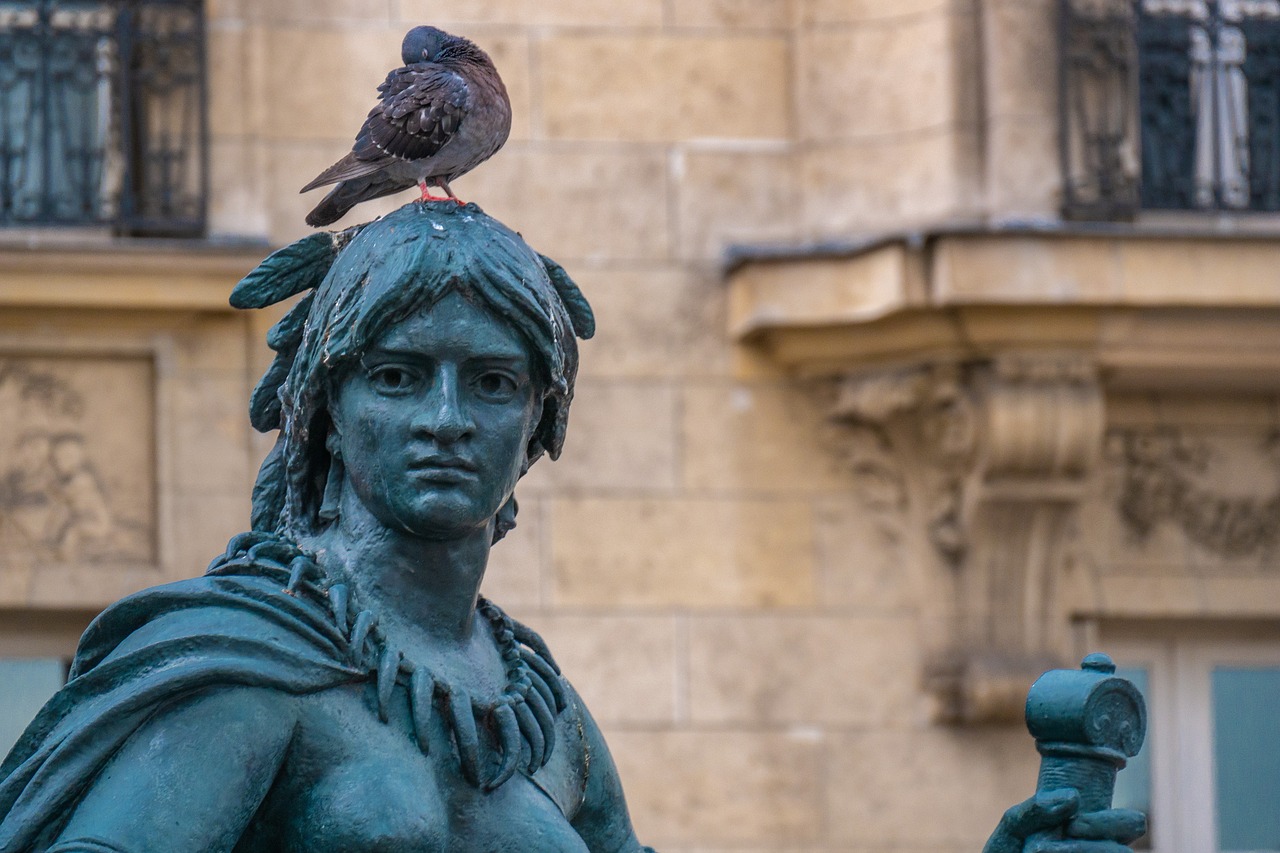
[Ownership Rights]
When you purchase a non-fungible token (NFT), it's essential to understand that ownership of the NFT itself does not automatically grant you the copyright of the underlying digital asset. This distinction can be quite perplexing for many buyers and collectors. Imagine buying a stunning painting; you own the canvas and the colors, but that doesn’t mean you can reproduce it or sell prints without the artist's permission. Similarly, with NFTs, while you may own a unique digital item, the rights associated with it can vary significantly.
The rights transferred with an NFT purchase can include certain usage rights, but these are often dictated by the terms set by the creator. For instance, some artists may allow buyers to display the art in virtual galleries or use it as a profile picture on social media, while others may impose restrictions on commercial use. This creates a landscape where the relationship between artists and collectors is nuanced and often requires clear communication and understanding.
To further complicate matters, the transferability of rights can differ based on the specific agreement between the creator and the buyer. When an NFT is sold, the original creator might retain certain rights, such as the ability to create derivative works or the right to receive royalties from future sales. This is similar to how some authors retain rights to their books, even after selling the physical copies. Therefore, it’s crucial for both artists and collectors to be aware of what rights are included in the sale.
In the digital realm, licensing agreements play a pivotal role in defining ownership rights. These agreements can specify what the buyer can and cannot do with the NFT, adding another layer of complexity. For example, a buyer might own an NFT of a famous meme, but the copyright to the meme itself remains with the original creator. This means that while the buyer can display the meme in their digital collection, they cannot legally produce merchandise featuring it without permission.
Real-world case studies highlight these complexities vividly. For instance, consider the case of an artist who sold an NFT of their artwork, only to find that the buyer began selling prints of the image without the artist's consent. This situation sparked a significant legal debate about what ownership truly signifies in the NFT space. As the market continues to evolve, these cases will likely shape the future of ownership rights in the digital asset landscape.
As we navigate this new frontier, it's clear that understanding ownership rights in the NFT realm is not just about the transaction itself. It’s about grasping the broader implications of digital ownership. As a buyer, asking the right questions and seeking clarity on the rights associated with your purchase can help avoid potential legal pitfalls and ensure a more rewarding experience.
- Do I own the copyright when I buy an NFT? No, purchasing an NFT does not automatically grant you copyright to the underlying work unless explicitly stated in the terms of sale.
- Can I sell an NFT I purchased? Yes, you can sell an NFT, but the rights associated with it may vary based on the original creator's terms.
- What should I check before buying an NFT? Always review the rights included in the sale and any licensing agreements to understand what you can do with the NFT.

[Transferability of Rights]
When it comes to the transferability of rights associated with non-fungible tokens (NFTs), the situation can get quite intricate. Unlike traditional assets, NFTs operate in a digital landscape where ownership and rights can be ambiguous. When you purchase an NFT, what exactly are you getting? This question is crucial because it goes beyond mere possession of a digital token.
In many cases, buying an NFT does not automatically grant you the copyright to the underlying artwork or digital asset. Instead, the seller may retain certain rights, while transferring others to the buyer. This creates a unique scenario where the rights transferred can vary significantly from one transaction to another. For instance, a buyer might gain the right to display the artwork but not the right to reproduce it commercially.
To clarify this complex relationship, let's consider a few key points regarding the transferability of rights:
- Licensing Agreements: Often, the rights associated with NFTs are defined in licensing agreements. These documents outline what the buyer can and cannot do with the NFT, providing a legal framework for the transaction.
- Smart Contracts: Many NFTs are sold with smart contracts that automatically enforce the terms of the sale. This can include stipulations about the transfer of rights, ensuring that both parties understand their responsibilities.
- Resale Rights: Some artists include resale rights in their agreements, allowing them to earn a percentage of future sales. This is an important consideration for artists looking to maintain a relationship with their work long after the initial sale.
The nuances of these rights can create a complicated landscape for both artists and collectors. For example, an artist may sell an NFT of their work but retain the copyright, allowing them to create prints or derivative works. On the other hand, the buyer may feel they have purchased a unique piece of art, leading to potential misunderstandings.
Real-world case studies highlight these complexities. In one instance, an NFT was sold with an ambiguous licensing agreement, leading to a legal dispute when the buyer attempted to use the artwork for commercial purposes. Such scenarios underline the importance of clear communication and well-defined contracts in the NFT space.
In conclusion, the transferability of rights associated with NFTs is not straightforward. Both buyers and sellers must navigate a landscape filled with legal intricacies and potential pitfalls. Understanding the specific rights being transferred in each transaction can help mitigate misunderstandings and protect the interests of all parties involved.

[Case Studies]
When it comes to understanding the legal complexities surrounding NFTs, real-world case studies provide invaluable insights. These examples not only highlight the intricacies of ownership rights but also demonstrate the varying legal interpretations that can arise from NFT transactions. One of the most notable cases in the NFT space involved the digital artist Beeple, who sold a piece titled "Everydays: The First 5000 Days" for a staggering $69 million at a Christie's auction. This sale raised questions about the rights transferred to the buyer and whether the hefty price tag was reflective of the underlying copyright ownership or merely the NFT's unique status as a digital collectible.
Another interesting case involved the NFT platform Nifty Gateway, which faced a lawsuit from a photographer claiming that his work was used without permission. The artist alleged that his images were minted as NFTs without his consent, sparking a debate about copyright infringement in the NFT space. This case underscores the importance of clear agreements regarding copyright and ownership before minting an NFT. It also highlights the necessity for platforms to implement robust verification processes to avoid similar disputes.
Furthermore, the case of "CryptoPunks," a collection of 10,000 unique digital characters created by Larva Labs, illustrates how ownership rights can be contested. While owning a CryptoPunk gives the buyer certain rights, it does not grant full copyright ownership of the image. This distinction has led to multiple discussions about what buyers are actually acquiring when they purchase an NFT. Many collectors assume that they own the art outright, but in reality, they may only have a license to display the image, leading to potential misunderstandings and legal disputes.
These case studies not only illuminate the challenges faced by artists and collectors in the NFT market but also emphasize the need for clearer regulations and guidelines. As the NFT space continues to grow, the outcomes of these legal battles will likely shape the future of digital ownership and copyright law, making it essential for participants to stay informed and understand their rights and responsibilities.
In summary, the NFT landscape is still evolving, and these case studies serve as reminders of the complexities involved in digital asset ownership. As more artists, buyers, and platforms engage in this innovative market, the legal implications will continue to unfold, necessitating a careful examination of each transaction's legal framework.
- What is an NFT? NFTs, or non-fungible tokens, are unique digital assets verified using blockchain technology, making them distinct from cryptocurrencies like Bitcoin.
- Do I own the copyright when I buy an NFT? No, purchasing an NFT does not automatically grant you copyright ownership. You typically acquire a license to use the digital asset, while the original creator retains copyright rights.
- How are NFTs taxed? Tax implications for NFTs vary by jurisdiction. In many cases, they are treated as property, meaning that capital gains tax may apply when sold for a profit.
- Are NFTs regulated? The regulatory landscape for NFTs is still developing. Different countries have varying approaches, and regulations may evolve as the market matures.

[Tax Implications]
The world of Non-Fungible Tokens (NFTs) isn't just a digital playground; it comes with a hefty dose of tax implications that creators and buyers need to navigate carefully. Just like any other asset, NFTs are subject to taxation, but the rules can vary dramatically depending on where you are in the world. This can create a confusing web of regulations that both artists and collectors must untangle. So, what does this mean for you? Let's break it down.
When an artist creates an NFT and sells it, the income generated is typically considered taxable income. In many jurisdictions, this means that the artist must report the sale on their tax return, just as they would with any traditional sale of physical art. However, the situation becomes more complex when the NFT is resold. For instance, if a collector buys an NFT and later sells it for a profit, they may be liable for capital gains tax on that profit. This is where things can get tricky, as the definition of "capital gains" can vary from one country to another.
It’s essential to understand that the tax treatment of NFTs can differ based on their classification. In some regions, NFTs may be treated as collectibles, which often come with a higher tax rate compared to other types of assets. For example, in the United States, collectibles are generally taxed at a maximum rate of 28%, which is significantly higher than the usual capital gains tax rate of 15% to 20% for other assets. This distinction can lead to unexpected tax liabilities for NFT creators and investors alike.
Another important factor to consider is the jurisdictional differences. Countries like the United States, Canada, and the United Kingdom have begun to establish guidelines for the taxation of NFTs, while others are still figuring it out. For instance, the IRS in the U.S. has issued guidance stating that cryptocurrencies, which share similarities with NFTs, should be treated as property for tax purposes. This means that any gains or losses from the sale of NFTs must be reported accordingly.
| Country | Tax Classification | Tax Rate |
|---|---|---|
| United States | Collectibles | 28% |
| Canada | Property | 50% of gains included in income |
| United Kingdom | Capital Gains | 10% to 20% |
Additionally, the method of acquisition can impact tax liabilities. If you receive an NFT as a gift, for instance, the tax implications differ from those associated with a purchase. In some cases, the recipient may need to report the fair market value of the NFT at the time of the gift as income. This highlights the importance of keeping detailed records of all NFT transactions, including purchase prices, sale prices, and any associated fees.
In summary, the tax implications surrounding NFTs are as dynamic as the technology itself. With the rapid evolution of the NFT market, it’s crucial to stay informed about the latest regulations and seek professional advice if necessary. Whether you're an artist looking to monetize your work or a collector aiming to profit from your investments, understanding the tax landscape can save you from unexpected surprises down the line.
- Are NFTs taxed like traditional assets? Yes, in many jurisdictions, NFTs are treated as property, and any gains from their sale may be subject to capital gains tax.
- What should I do if I receive an NFT as a gift? You may need to report the fair market value of the NFT as income, depending on your local tax laws.
- How can I keep track of my NFT transactions for tax purposes? It's essential to maintain detailed records of all purchases, sales, and associated fees to accurately report your taxes.

[Regulatory Landscape]
The regulatory landscape surrounding non-fungible tokens (NFTs) is as dynamic as the technology itself. As these digital assets have surged in popularity, lawmakers and regulatory bodies worldwide are grappling with how to classify and regulate them. The challenge lies in defining NFTs within existing legal frameworks, which were often created long before the advent of blockchain technology. This section will delve into the current state of regulations, the challenges faced, and the potential for future legislation that could shape the NFT marketplace.
One of the primary concerns for regulators is ensuring consumer protection. As NFTs often involve significant financial transactions, safeguarding buyers from fraud and misrepresentation is crucial. In many jurisdictions, existing consumer protection laws are being scrutinized to determine their applicability to NFT transactions. For instance, if a buyer purchases an NFT that claims to represent a digital artwork, but the seller does not have the rights to sell that artwork, the buyer could be at risk. Regulatory bodies are considering how to implement measures that protect consumers in these situations, such as requiring clearer disclosures about ownership rights and the nature of the digital asset being sold.
Another aspect of the regulatory landscape is the taxation of NFT transactions. Different jurisdictions are approaching the taxation of NFTs in various ways, leading to a patchwork of regulations. In some countries, NFTs are treated as property, meaning that any profits made from their sale could be subject to capital gains tax. In others, NFTs may be classified similarly to cryptocurrencies, leading to different tax implications. This inconsistency can create confusion for creators and buyers alike, making it essential for participants in the NFT market to stay informed about their local tax regulations.
Furthermore, the international nature of the NFT market complicates regulatory efforts. NFTs can be bought and sold across borders, leading to questions about which country's laws apply to a given transaction. For example, an artist in the United States selling an NFT to a buyer in Europe may need to navigate both U.S. and European regulations. This complexity highlights the need for international cooperation and the development of standardized regulations that can provide clarity and consistency across jurisdictions.
As we look to the future, it's likely that we will see more comprehensive legislation aimed at regulating NFTs. Lawmakers are beginning to recognize the need for a framework that addresses the unique characteristics of digital assets while also protecting consumers and ensuring fair practices in the marketplace. It’s essential for stakeholders in the NFT ecosystem—artists, buyers, and platforms—to engage with policymakers to shape regulations that not only protect participants but also foster innovation and growth in this exciting new space.
- What are the main regulatory challenges facing NFTs? The main challenges include consumer protection, taxation, and the international nature of NFT transactions.
- How are NFTs taxed in different countries? Taxation varies widely; some countries treat NFTs as property, while others classify them similarly to cryptocurrencies.
- What role do consumer protection laws play in NFT transactions? Consumer protection laws are crucial to safeguard buyers from fraud and ensure transparency in ownership rights.
- Will regulations for NFTs become more standardized globally? There is potential for more standardized regulations as international cooperation increases in response to the growing NFT market.
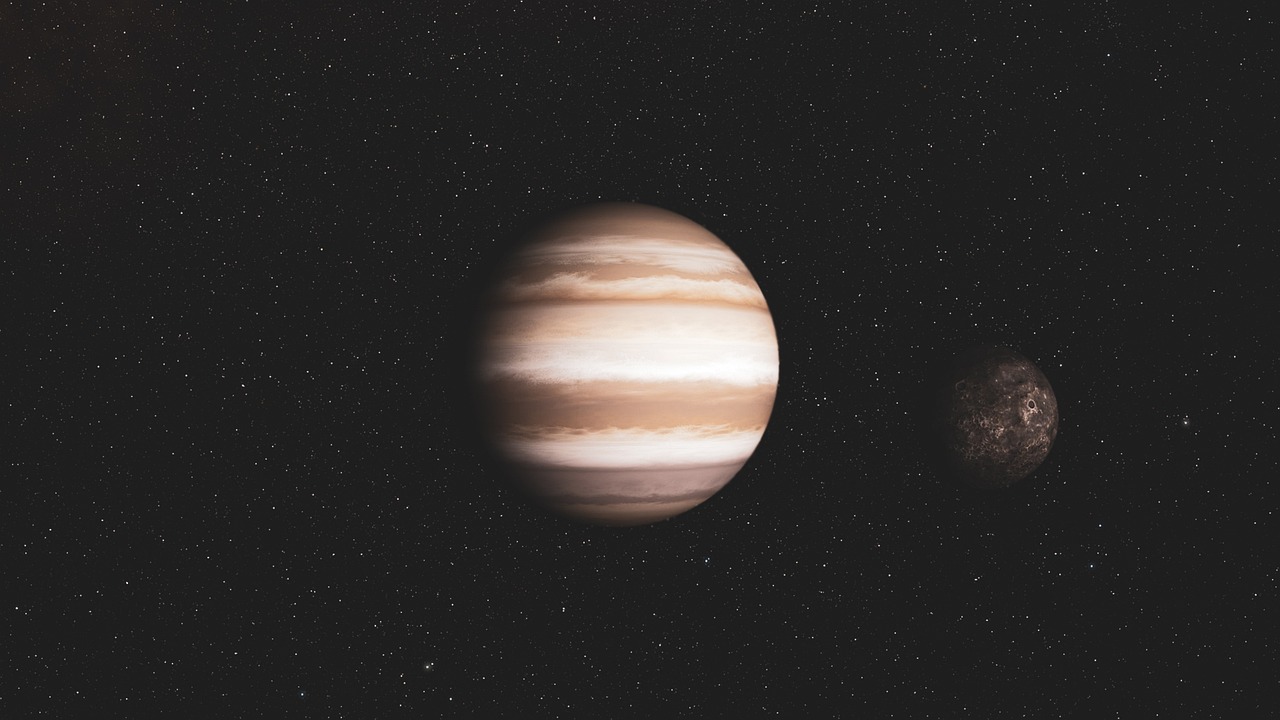
[Consumer Protection]
As the world of Non-Fungible Tokens (NFTs) continues to expand, the importance of consumer protection cannot be overstated. Just like any other marketplace, the NFT space is not immune to risks and vulnerabilities. Buyers and sellers need to navigate this digital landscape with caution, as the lack of regulation can lead to potential fraud, misrepresentation, and lack of recourse in disputes. So, what exactly does consumer protection look like in the realm of NFTs?
First off, it's essential to understand that consumer protection laws vary significantly by jurisdiction. In some regions, these laws may not yet adequately cover digital assets like NFTs, leaving consumers vulnerable. For instance, if a buyer purchases an NFT that turns out to be a counterfeit or misrepresented item, they may find themselves without legal recourse. This is particularly concerning in a market where prices can soar into the millions.
To address these challenges, several measures can enhance consumer protection in the NFT space:
- Transparency in Transactions: Platforms facilitating NFT sales should provide clear information about the asset, including its provenance and any associated rights. This transparency helps buyers make informed decisions.
- Dispute Resolution Mechanisms: Establishing robust mechanisms for resolving disputes can provide a safety net for consumers. This could include mediation services or arbitration agreements that are accessible and fair.
- Regulatory Oversight: As governments begin to recognize the potential of NFTs, regulatory bodies may introduce guidelines to protect consumers from fraud and abuse. This could involve requiring platforms to adhere to specific standards.
Moreover, consumers should be proactive in protecting themselves. Here are a few tips:
- Always verify the authenticity of an NFT before making a purchase. Research the creator and the platform where the NFT is listed.
- Read the terms and conditions carefully. Understanding what rights you are acquiring with an NFT can save you from future headaches.
- Stay informed about your jurisdiction's consumer protection laws as they relate to digital assets.
In conclusion, while the NFT market presents exciting opportunities, it also poses significant risks for consumers. As the landscape evolves, it is crucial for both buyers and sellers to prioritize consumer protection, ensuring that transactions are safe and transparent. The future of NFTs may hold great promise, but it is imperative to tread carefully and advocate for stronger protections within this burgeoning marketplace.
Q1: What are NFTs?
A1: NFTs, or Non-Fungible Tokens, are unique digital assets verified using blockchain technology. They can represent ownership of digital art, music, virtual real estate, and more.
Q2: How do consumer protection laws apply to NFTs?
A2: Consumer protection laws can vary by region, but they generally aim to ensure transparency, fairness, and recourse for buyers in case of fraud or misrepresentation in NFT transactions.
Q3: What should I do if I suspect fraud in an NFT transaction?
A3: If you suspect fraud, document all relevant information and reach out to the platform where the transaction occurred. You may also want to consult legal advice based on your jurisdiction.
Q4: Are there any regulatory bodies overseeing NFTs?
A4: Currently, regulatory oversight of NFTs is limited, but many governments are beginning to explore the implications of digital assets, which may lead to future regulations.

[International Perspectives]
The world of Non-Fungible Tokens (NFTs) is as diverse as the digital art it represents. When we consider the international perspectives on NFTs, we quickly realize that different countries have adopted varying approaches to regulation, taxation, and ownership rights. This patchwork of legal frameworks can be likened to a global tapestry, with each thread representing a unique jurisdiction and its stance on NFTs.
For instance, in the United States, NFTs are primarily viewed through the lens of existing intellectual property laws. The U.S. Copyright Office has clarified that owning an NFT does not automatically grant copyright ownership of the underlying digital asset. This means that while you may have purchased a unique digital item, the creator retains certain rights unless explicitly transferred. This situation can lead to confusion among buyers who assume they own all rights to the art they purchase.
Across the Atlantic, the European Union is also grappling with the implications of NFTs. The EU has been proactive in discussing potential regulations, focusing on consumer protection and the rights of creators. The Digital Services Act and the Digital Markets Act are two legislative frameworks that could impact how NFT platforms operate within Europe. Moreover, the EU's approach emphasizes the need for transparency in transactions, ensuring that buyers are fully informed about what they are purchasing.
In contrast, countries like China have taken a more cautious stance. While the Chinese government has not outright banned NFTs, it has imposed strict regulations on cryptocurrencies and related digital assets. This creates a unique environment where NFT projects must navigate a complex regulatory landscape, often leading to a focus on domestic platforms that comply with government guidelines. As a result, Chinese artists and creators may find themselves operating in a more restricted space compared to their Western counterparts.
Meanwhile, nations such as Singapore and Switzerland are emerging as leaders in the NFT space, promoting innovation while establishing clear legal frameworks. Singapore's Monetary Authority has implemented guidelines that provide clarity on the treatment of digital tokens, including NFTs, under existing laws. Similarly, Switzerland's progressive stance on blockchain technology has attracted numerous NFT projects, fostering a vibrant ecosystem that supports both creators and collectors.
As we look at the global landscape, it becomes evident that the future of NFTs will heavily depend on how these varying legal frameworks evolve. The need for a cohesive international approach is becoming increasingly apparent, especially as NFTs continue to gain popularity across borders. The challenge lies in balancing innovation with the protection of rights for creators and consumers alike.
In conclusion, the international perspectives on NFTs showcase a fascinating interplay of regulation, creativity, and commerce. As countries navigate this new digital frontier, the outcomes will likely shape the future of how we perceive ownership, rights, and value in the digital age.
- What are NFTs? NFTs, or Non-Fungible Tokens, are unique digital assets verified using blockchain technology, representing ownership of a specific item or piece of content.
- Do I own the copyright if I buy an NFT? No, purchasing an NFT does not automatically grant you copyright over the underlying digital asset unless explicitly stated.
- How are NFTs taxed? Tax implications for NFTs vary by jurisdiction, with some countries treating them as capital assets while others may impose different rules.
- What are the consumer protections in NFT transactions? Consumer protection laws can vary significantly by region, affecting how buyers and sellers engage in NFT transactions.
Frequently Asked Questions
- What are Non-Fungible Tokens (NFTs)?
Non-Fungible Tokens, or NFTs, are unique digital assets verified using blockchain technology. Unlike cryptocurrencies like Bitcoin or Ethereum, which are interchangeable, each NFT has distinct characteristics that make it one-of-a-kind. Think of NFTs as digital collectibles—just like a rare baseball card or a unique piece of art!
- Do I own the copyright to an NFT if I purchase it?
No, buying an NFT does not automatically grant you copyright over the digital asset. Ownership of an NFT typically means you own the specific token on the blockchain, but the underlying copyright may still belong to the original creator. It's essential to understand what rights you are acquiring with your purchase.
- How are NFTs taxed?
The taxation of NFTs varies by jurisdiction. In many places, NFTs are treated as property, which means that selling them could trigger capital gains tax. Creators may also face tax liabilities on income generated from sales. Always consult with a tax professional to understand your obligations based on where you live.
- Are there consumer protections for NFT buyers?
Consumer protection laws can apply to NFT transactions, but the landscape is still developing. Depending on your location, you may have some rights regarding refunds, misrepresentation, or fraud. It's crucial to do your research and ensure you are buying from reputable sources to protect yourself.
- How do different countries regulate NFTs?
Countries around the world have varying approaches to NFT regulation. Some nations are embracing the technology and creating clear guidelines, while others are still figuring out how to handle it. This difference can affect how NFTs are traded and taxed, so it's important to stay informed about the regulations in your country.
- Can NFTs be transferred or sold?
Yes, NFTs can be transferred or sold, just like any other asset. However, the rights associated with the NFT depend on the terms set by the creator. Some NFTs come with specific licenses that outline what the new owner can or cannot do with the asset, so always check the terms before making a transaction.
- What are some real-world examples of NFT ownership disputes?
There have been several high-profile disputes in the NFT space regarding ownership and copyright. For instance, artists have sometimes found their work tokenized and sold without their permission. These cases highlight the importance of understanding the legal implications of NFTs and the need for clear agreements between creators and buyers.




